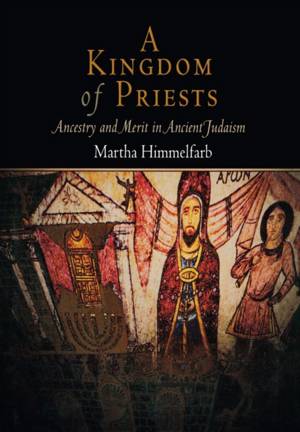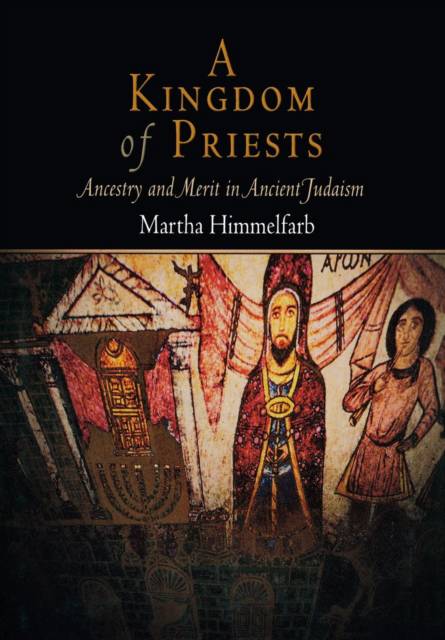
Bedankt voor het vertrouwen het afgelopen jaar! Om jou te bedanken bieden we GRATIS verzending (in België) aan op alles gedurende de hele maand januari.
- Afhalen na 1 uur in een winkel met voorraad
- In januari gratis thuislevering in België
- Ruim aanbod met 7 miljoen producten
Bedankt voor het vertrouwen het afgelopen jaar! Om jou te bedanken bieden we GRATIS verzending (in België) aan op alles gedurende de hele maand januari.
- Afhalen na 1 uur in een winkel met voorraad
- In januari gratis thuislevering in België
- Ruim aanbod met 7 miljoen producten
Zoeken
Omschrijving
A Kingdom of Priests Ancestry and Merit in Ancient Judaism Martha Himmelfarb According to the account in the Book of Exodus, God addresses the children of Israel as they stand before Mt. Sinai with the words, "You shall be to me a kingdom of priests and a holy nation" (19:6). The sentence, Martha Himmelfarb observes, is paradoxical, for priests are by definition a minority, yet the meaning in context is clear: the entire people is holy. The words also point to some significant tensions in the biblical understanding of the people of Israel. If the entire people is holy, why does it need priests? If membership in both people and priesthood is a matter not of merit but of birth, how can either the people or its priests hope to be holy? How can one reconcile the distance between the honor due the priest and the actual behavior of some who filled the role? What can the people do to make itself truly a kingdom of priests? Himmelfarb argues that these questions become central in Second Temple Judaism. She considers a range of texts from this period, including the Book of Watchers, the Book of Jubilees, legal documents from the Dead Sea Scrolls, the writings of Philo of Alexandria, and the Book of Revelation of the New Testament, and goes on to explore rabbinic Judaism's emphasis on descent as the primary criterion for inclusion among the chosen people of Israel--a position, she contends, that took on new force in reaction to early Christian disparagement of the idea that mere descent from Abraham was sufficient for salvation. Martha Himmelfarb is Professor of Religion at Princeton University. She is the author of Ascent to Heaven in Jewish and Christian Apocalypses and Tours of Hell: An Apocalyptic Form in Jewish and Christian Literature, the latter also published by the University of Pennsylvania Press. Jewish Culture and Contexts 2006 280 pages 6 x 9 ISBN 978-0-8122-3950-8 Cloth $65.00s £42.50 ISBN 978-0-8122-0227-4 Ebook $65.00s £42.50 World Rights Religion, History Short copy: Considers a range of texts--including the Book of Watchers, Book of Jubilees, legal documents from the Dead Sea scrolls, writings of Philo of Alexandria, and the Book of Revelation--to explore the tensions inherent in Second Temple Judaism's emphasis on ancestry as the primary criterion for inclusion among the chosen people of Israel.
Specificaties
Betrokkenen
- Auteur(s):
- Uitgeverij:
Inhoud
- Aantal bladzijden:
- 280
- Taal:
- Engels
- Reeks:
Eigenschappen
- Productcode (EAN):
- 9780812239508
- Verschijningsdatum:
- 10/10/2006
- Uitvoering:
- Hardcover
- Formaat:
- Genaaid
- Afmetingen:
- 157 mm x 231 mm
- Gewicht:
- 589 g

Alleen bij Standaard Boekhandel
+ 216 punten op je klantenkaart van Standaard Boekhandel
Beoordelingen
We publiceren alleen reviews die voldoen aan de voorwaarden voor reviews. Bekijk onze voorwaarden voor reviews.









